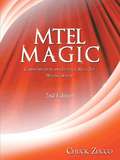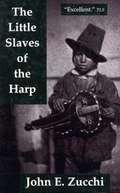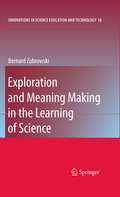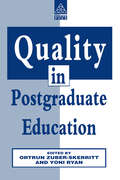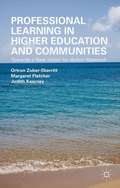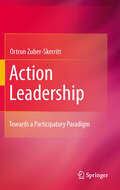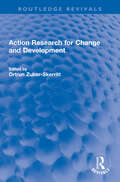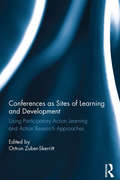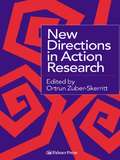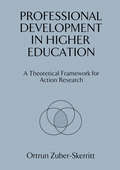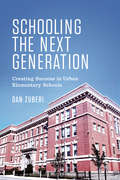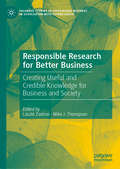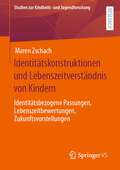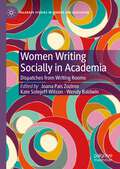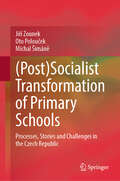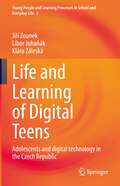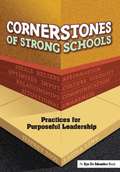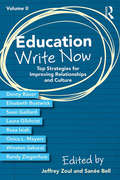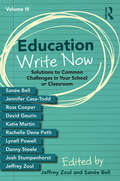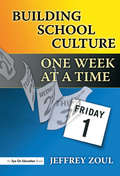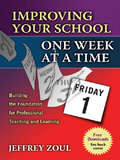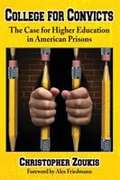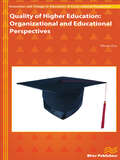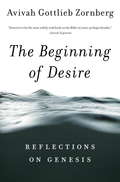- Table View
- List View
MTEL Magic: Writing Subtest
by Chuck ZuccoThe name of this book is a misnomer. There really is no magical solution to taking this or any other test. What makes this book different is that it presents a simple formula for passing-skills + strategies + practice = success.
The Little Slaves of the Harp: Italian Child Street Musicians in Nineteenth-Century Paris, London, and New York (McGill-Queen's Studies in Ethnic History #13)
by John E. ZucchiDuring the nineteenth century child musicians could be seen performing in the streets of cities across Europe and North America. Although they came from a number of countries, Italians were most associated with street music. In The Little Slaves of the Harp John Zucchi tells the story of the thousands of Italian children who were indentured to padrone and then uprooted from their villages in central and southern Italy and taken to Paris, London, and New York to perform as barrel-organists, harpists, violinists, fifers, pipers, and animal exhibitors.
Exploration and Meaning Making in the Learning of Science
by Bernard ZubrowskiThis book provides a broad and deep rationale for various pedagogical practices associated with the teaching of science. The main thesis of this book is that the exploratory phase of scientific inquiry is undervalued and its purpose misunderstood. Furthermore, there is a need for an expanded conception or alternative way of thinking about the so called learning cycle that has been frequently cited as the pedagogical model for a fair number of curriculum programs. A pedagogical model is proposed that recognizes learning cycles as ones that build on each other in an in-depth developmental manner. It presents an alternative paradigm that gives more attention to the motivation of students and assigns an essential role for student input. The overall goal is to move the reader to think more holistically about the practice of science education. This original and unorthodox book summarizes the author's present thinking about curriculum design and direct work with students. The author draws upon his varied experiences to present a case for the importance of direct engagement with phenomena and materials. He argues that this practice is more than a matter of motivating students to become engaged in inquiry. The first four chapters lay out different levels of a pedagogical approach and an overall theoretical orientation. The middle chapters focus on what might be called sensory knowledge. These are concerned with the role of different sensory engagement, movement as related to gestural representation and the role of empathy in exploration. The last four chapters are about the role of aesthetic, play, variable exploration and metaphor in their shaping of science education experiences. Each chapter is introduced with a scenario or case study describing the behavior and talk of elementary or middle school students. The intention of these scenarios is to help the reader stay grounded while considering the more abstract development of research reports and broader philosophical issues.
Porque te quiero: Educar con amor y mucho más
by Carlos Goñi Zubieta Pilar Guembe MañeruTodos los padres quieren a sus hijos, pero no todos saben quererlos. Hay que saber administrar el amor: amar con cabeza, que no significa quererlos menos, sino al contrario, supone un plus afectivo por nuestra parte. En esta tarea no se puede ir con tiento sino que hay que derrochar cariño por los cuatro costados, pero sin malgastarlo, o lo que es lo mismo, sin gastarlo mal.Malgastar el amor que damos a nuestros hijos significa no invertirlo adecuadamente, canjearlo por un activo atractivo pero ineficaz. Quererlos es fácil, lo hacemos de forma natural, pero lo que ellos necesitan es que se les quiera bien, que se invierta ese capital inmenso en una cuenta a largo plazo que reporte los intereses no en los padres sino en los hijos.El libro de Pilar y Carlos da muchas pistas para afrontar los pequeños retos cotidianos tan decisivos en la educación de los hijos. Estructurado en cuatro partes (Porque quiero que seas independiente, Porque quiero que seas capaz, Porque quiero que seas tú, Porque quiero que seas feliz), aporta ideas muy prácticas para que los padres no caigamos en errores tan inconscientes como habituales (Situaciones a evitar).Pilar y Carlos (Pamplona, 1963) están casados y son padres de Adrián y Paula. Llevan más de 20 años dedicados a la enseñanza, durante los cuales han acumulado mucha experiencia tanto en el trato con padres como con alumnos. Pilar es pedagoga y trabaja como profesora y orientadora. Carlos es doctor en filosofía y escritor. Juntos imparten conferencias y asesoran en temas educativos. Escriben artículos en diferentes medios y son autores de No se lo digas a mis padres y No me ralles, donde afrontan los conflictos más comunes entre los adolescentes. En este libro se centran en la etapa más decisiva en la educación de los hijos (desde los 0 a los 12 años). Quieren motivar a los padres a educar con amor y mucho más?
Quality in Postgraduate Education
by Ortrun Zuber-Skerritt Yoni RyanThis text is designed to respond to the uppermost area of concern in postgraduate education today - that of achieving quality. The book discusses issues of quality and research culture, including criteria for evaluating theses and research applications, and women and overseas students.
Professional Learning in Higher Education and Communities
by Ortrun Zuber-Skerritt Margaret Fletcher Judith KearneyBy integrating neuroscience and social science, this book introduces a bold new vision of Participatory Action Learning and Action Research (PALAR). The authors explain and enhance the art of action research through PALAR as a philosophy, methodology and theory of learning and as a facilitation process for professional learning and social justice.
Action Leadership: Towards a Participatory Paradigm (Professional and Practice-based Learning)
by Ortrun Zuber-SkerrittAction leadership is a creative, innovative, collaborative and self-developed way to lead. It eschews the hierarchical structure usually associated with leadership and is based instead on the democratic values of freedom, equality, inclusion and self-realization. It take responsibility for, not control over, people through networking and orchestrating human energy towards a holistic outcome that benefits the common interest. Action leaders are passionate people who abide by the motto that "Learning does not mean to fill a barrel but rather to ignite a flame" in others. And in this time of rapid economic, political, technological, social and ecological changes, action leadership and action leaders are precisely what's needed to improve how people and organizations engage constructively to address the myriad complex issues challenging society at all levels. Action Leadership: Towards a Participatory Paradigm explains and illustrates how action leadership can be developed through participatory action learning and action research (PALAR). It addresses real-life issues by people who choose to work collaboratively towards shared goals while developing their learning, insights, knowledge, people skills and personal relationships through involvement in a PALAR project. The book provides a conceptual framework for action leadership and for the integrative, practical theory of PALAR; and examples of applications in higher education, management education for organization development, and community development. Readers are encouraged to adopt, adapt and further develop the evolving concepts of action leadership and PALAR in a participatory paradigm of learning, research and development.
Action Research for Change and Development (Routledge Revivals)
by Ortrun Zuber-SkerrittFirst Published in 1991, Action Research for Change and Development presents a collection of papers evolved from an international symposium on Action Research in Higher Education, Government and Industry held in Brisbane in 1989. The book is structured in three parts. Part one consists of reflections on the meaning and theoretical foundation of action research. Part two discusses various aspects of action research methodology; and Part three presents case studies of action research. The aim of the book is to bring together international experts in action research in higher education in order to present and discuss a variety of models of action research which have been developed in parallel in many parts of the world. This book will be an essential read for scholars and researchers of education, higher education, business, industry, and community development.
Conferences as Sites of Learning and Development: Using participatory action learning and action research approaches
by Ortrun Zuber-SkerrittThis book applies and expands upon the concept of the ‘learning conference’ as a site of learning and development, using the paradigm and methodologies of participatory action learning and action research (PALAR). Making a significant contribution to the field, this is the first book to outline the characteristics and development of a learning conference culture in theory and practice. It demonstrates how application of the learning conference concept can maximise learning opportunities and successful research outcomes to bring about sustainable professional, organizational and community development. An international team of contributors offer their diverse perspectives on conferences and the practical and theoretical work conducted at these events. They contextualize these reflections in the light of global developments in this increasingly troubled twenty-first century marked by greater complexity through technology, globalization, neo-liberalism, climate change and other sources of practical and ideological change, all of which enhance the conceptual and practical utility of the learning conference.
New Directions in Action Research
by Ortrun Zuber-SkerrittFirst published in 1996. Routledge is an imprint of Taylor & Francis, an informa company.
Professional Development in Higher Education: A Theoretical Framework for Action Research
by Ortrun Zuber-SkerrittThis study offers a theoretical framework for professional development in higher education and examines the priorities for teachers' careers in the 1990s. It may be used as a companion volume to the author's work, "Action Research in Higher Education".
Schooling the Next Generation
by Dan ZuberiPublic schools are among the most important institutions in North American communities, especially in disadvantaged urban neighbourhoods. At their best, they enable students to overcome challenges like poverty by providing vital literacy and numeracy skills. At their worst, they condemn students to failure, both economically and in terms of preparing them to be active participants in a democratic society.In Schooling the Next Generation, Dan Zuberi documents the challenges facing ten East Vancouver elementary schools in diverse lower-income communities, as well as the ways their principals, teachers, and parents are overcoming these challenges. Going beyond the façade of standardized test scores, Zuberi identifies the kinds of school and community programs that are making a difference and could be replicated in other schools. At the same time, he calls into question the assumptions behind a test score-driven search for "successful schools." Focusing on early literacy and numeracy skills mastery, Schooling the Next Generation presents a slate of policy recommendations to help students in urban elementary schools achieve their full potential.
Responsible Research for Better Business: Creating Useful and Credible Knowledge for Business and Society (Palgrave Studies in Sustainable Business In Association with Future Earth)
by László Zsolnai Mike J. ThompsonThis book gathers original, empirical and conceptual papers that address the complex challenges of conducting responsible research in the business and management professions. It includes contributions related to, and reflecting on, the vision of the Responsible Research in Business and Management (RRBM) network, which proposes that business can help provide a better world if it is informed by responsible research. The responsible research agenda requires new methods of scholarly assessment that include criteria for measuring impact, systemic solutions and practitioner relevance. Theories greatly influence business and management practices, and as the late Sumantra Ghoshal warned, bad management theories are destroying good management practices. The authors of this book believe that good management theories can help to create new and better business practices.
Identitätskonstruktionen und Lebenszeitverständnis von Kindern: Identitätsbezogene Passungen, Lebenszeitbewertungen, Zukunftsvorstellungen (Studien zur Kindheits- und Jugendforschung #6)
by Maren ZschachWie erzählen und beschreiben Kinder sich selbst und ihre Lebenszeit? Die Studie untersucht diese Frage anhand vergleichender Rekonstruktionen von zwölf biographischen Interviews mit Zehn- bis Elfjährigen. Im Ergebnis werden vier verschiedene Identitätstypen herausgearbeitet, die sich in ihrer Orientierung an Autonomie und Anpassung bzw. dem Streben nach Anerkennung unterscheiden. In einer sinngenetischen Typologie werden die unterschiedlichen Bezugnahmen auf Identität diskutiert. Es zeigt sich, dass eine geringe Passförmigkeit zwischen diesen Orientierungen dominiert und eine balancierte Identität demgegenüber randständiger ist. Diese Analyse, die mit der Dokumentarischen Methode durchgeführt wurde, basiert auf identitätstheoretischen Annahmen von Mead, James, Goffman und Honneth sowie spezifischen Betrachtungen der Selbstentwicklung insbesondere von jungen Menschen wie z.B. von Krappmann oder Keupp u.a. Aus soziogenetischer Sicht ist ein Ergebnis, dass die erarbeitete Identitätstypologie schulformspezifische Unterschiede aufweist. In einer relationalen Typologie korrespondiert eine Betrachtung von Lebenszeit als Wandel mit Typen einer stärkeren identitätsbezogenen Passförmigkeit, während Kontinuitätsannahmen von Zeit eher für Identitätstypen zutreffen, in denen eine starke Autonomie- oder Anpassungsorientierung dominiert.
Women Writing Socially in Academia: Dispatches from Writing Rooms (Palgrave Studies in Gender and Education)
by Joana Pais Zozimo Kate Sotejeff-Wilson Wendy BaldwinThis book offers a multifaceted perspective on social writing in a volatile, uncertain and complex world. It meets the need to enable women’s capacity, especially in academic settings, to structure their own writing practice and that of others in the community. It expands current research on social writing beyond its core context in English-speaking countries to multilingual contexts from Portugal to Finland, identifying fruitful areas for interdisciplinary research, nexuses of social practice, and strategies for situated social learning through a feminist lens, bringing women from the margins to the centre. As the average woman academic with children is losing an hour of research and writing time every day in the aftermath of the Covid-19 pandemic, the impact of which will be felt for decades, the book purposefully entwines these polyphonic voices to tell the story of a writing retreat as a space for leadership and empowerment.
(Post)Socialist Transformation of Primary Schools: Processes, Stories and Challenges in the Czech Republic
by Jiří Zounek Oto Polouček Michal ŠimáněThis book addresses the transformation of primary education in the former Czechoslovakia (now the Czech Republic) after the fall of the communist regime in 1989. It follows the overall transformation of education and school policy and offers original insights into the everyday life of the schools at that time. It also provides a unique perspective on the whole transformation process. The work discusses the school environment in the context of specific local characteristics, such as parents, community, regional institutions, and national and international contexts. The book specifically focuses on the changes in primary school management in terms of economics, organization, and personnel. The processes of pedagogical change are an essential theme of the book. They cover how teachers proceeded through the changes in their work at the time of the transformation and the reasons for their resistance to change, including the challenges that the transformation introduced into their work and personal lives. The book also monitors how the teachers navigated the selection and use of new textbooks and tools, such as digital tools. The work originates in historical-pedagogical research, based primarily on the oral history method and complemented by the study of contemporary documents.
Life and Learning of Digital Teens: Adolescents and digital technology in the Czech Republic (Young People and Learning Processes in School and Everyday Life #6)
by Jiří Zounek Libor Juhaňák Klára ZáleskáThis book describes and explains how digital technologies enter adolescents’ everyday life and learning in different contexts and environments. The book is based on research conducted in recent years in the Czech Republic, the results of which are set within a broad theoretical and international framework.The authors consider the theoretical and methodological anchoring of the topic, describing various approaches in an effort to comprehensively describe and understand the learning process of today’s pupils. They focus on ways to explore learning in the digital era, domestication of digital technology in families, and parents' approaches to digital technology. Attention is paid to adolescents’ competences and autonomy in the use of digital technologies, as well as their views on technology in their lives and learning. The authors summarize the most important results of the research, but also consider the options of empirical research and their own experience with the research of such a complex concept.
Cornerstones of Strong Schools: Practices for Purposeful Leadership
by Jeffrey Zoul Laura LinkThis book describes the practices of principals who develop and maintain purposeful learning communities. It applies and extends nine of the leadership responsibilities identified in research conducted by Marzano, Waters, and McNulty in School Leadership That Works.
Education Write Now, Volume II: Top Strategies for Improving Relationships and Culture
by Jeffrey Zoul Sanée BellIn this innovative series Education Write Now, ten of education’s most inspiring thought-leaders meet for a three-day retreat to think and write collaboratively, and then bring you the top takeaways you need right now to improve your school or classroom. This second volume, edited by Jeff Zoul and Sanée Bell, focuses on relationships—the heart of everything we do in education. Building strong relationships and a positive school culture takes intentional, consistent effort, and the authors provide strategies and examples to help you along the way. Throughout the book, you’ll find insights and inspiration on these topics: Connecting the dots among students and staff (Jeffrey Zoul) Strengthening relationships in the learner-centered class (Randy Ziegenfuss) Building a culture of equity and access (Rosa Isiah) Cultivating student strengths and interests (Elisabeth Bostwick) Bridging the gap between schools and families (Laura Gilchrist) Deepening connections through productive conflict (Sanée Bell) Finding relationships beyond the four walls (Onica Mayers) Connecting through the power of generosity (Winston Sakurai) Bringing passion into the schoolhouse (Sean Gaillard) Tapping into dreams for a world-class culture (Danny Bauer) The royalties generated from this book will support the Will to Live Foundation, a nonprofit foundation working to prevent teen suicide.
Education Write Now, Volume III: Solutions to Common Challenges in Your School or Classroom
by Jeffrey Zoul Sanée BellIn this innovative series Education Write Now, ten of education’s most inspiring thought-leaders meet for a three-day retreat to think and write collaboratively, and then bring you the top takeaways you need right now to improve your school or classroom. This third volume, edited by Jeffrey Zoul and Sanée Bell, focuses on overcoming common problems in your classroom or school. There are many challenges we face as educators, no matter what kind of district or building we work in. The authors provide practical, insightful solutions and inspiring stories to motivate you on your journey, so you can get past the roadblocks and focus on what matters most—bringing all students to success. Topics include: Sustaining Joy (Lynell Powell) Breaking Free from Isolation (Rachelle Dene Poth) Broadening Our Definition of Literacy (Jennifer Casa-Todd) Making Libraries Relevant (Josh Stumpenhorst) Developing Perseverance in Kids (David Geurin) Promoting Positive Student Behavior (Jeffrey Zoul) Connecting with Students of Color (Sanée Bell) Elevating Instructional Supervision (Ross Cooper) Shifting Professional Learning (Katie Martin) Maintaining Staff Morale (Danny Steele) The royalties generated from this book will support the Will to Live Foundation, a nonprofit foundation working to prevent teen suicide.
Building School Culture One Week at a Time
by Jeffrey ZoulUse Friday Focus memos to motivate and engage your staff every week, and help create a school culture focused on the growth of students and teachers. Easy to understand and implement, Friday Focus memos offer an effective and efficient way to improve student learning, staff development, and school culture from within. Written by educational consultant and former principal of two award-winning schools, Jeffrey Zoul, these memos focus on topics such as active learning, high expectations, gratitude, test preparation, and more. Zoul provides 37 teaching and learning memos, one for each week of the school year, for principals and other administrators to reproduce and circulate among their staff. Zoul prefaces each memo with stories from his experiences as a teacher, coach, and assistant principal in the K-12 levels. You can also write your own memos, with guidance on possible topics and teacher takeaways.
Improving Your School One Week at a Time: Building the Foundation for Professional Teaching and Learning
by Jeffrey ZoulThis book displays 37 “Friday Focus” memos, each of which provides insight into a specific aspect of teaching and learning for all to reflect on throughout the year. Friday Focus memos address the principal’s responsibility to shape the school culture, provide intellectual stimulation, and communicate effectively. The memos are organized around the school year and provide educators with a wide variety of insights into how to improve our schools. They are typically between 500–1,000 words in length and can be sent out via e-mail to each staff member – not only to the teachers but also secretaries, custodians, and cafeteria workers. A vehicle for school improvement, the Friday Focus memos provide a step-by-step plan for staff members and principals to work together as change agents for school improvement.
College for Convicts: The Case for Higher Education in American Prisons
by Christopher ZoukisThis volume presents a workable solution to America's mass incarceration and recidivism problems, and demonstrates that great fiscal benefits arise when modest sums are spent educating prisoners. Prisoner education results in a reduction in crime and social disruption, reduced domestic spending and a rise in quality of life.
Quality of Higher Education: Organizational and Educational Perspectives
by Yihuan ZouQuality in higher education was not invented in recent decades – universities have always possessed mechanisms for assuring the quality of their work. The rising concern over quality is closely related to the changes in higher education and its social context. Among others, the most conspicuous changes are the massive expansion, diversification and increased cost in higher education, and new mechanisms of accountability initiated by the state. With these changes the traditional internally enacted academic quality-keeping has been given an important external dimension – quality assurance, which requires higher education institutions to continuously demonstrate and improve performance, and which also provides new systems of rewards and sanctions. However, the complex impacts of quality assurance policies have shown a need to further understand the quality issue in higher education.This book is about constructing a more inclusive understanding of quality in higher education through combining the macro, meso and micro levels, i.e. from the perspectives of national policy, higher education institutions as organizations in society, individual teaching staff and students. It covers both theoretical constructions for understanding quality and empirical investigation in the Chinese context. The questions addressed are: How is quality of higher education perceived by the institution, teaching staff and students, respectively? What are the main concerns for the institution, teaching staff and students in their own pursuit of quality? It has been concluded that quality of higher education is not only about educational quality, but also about expanding life chances for the students, prosperity in the administrative system for the teaching staff,and organizational prosperity for the institution. With regard to quality assurance and accountability in higher education special attention should be given to the values pursued and be careful to balance between immediate, single-value efficiency and sustainable development and a wider-range of values that higher education serves.
The Beginning of Desire: Reflections on Genesis
by Avivah Gottlieb ZornbergWinner of the National Jewish Book Award Since its publication in 1995,The Beginning of Desirehas opened new pathways in the reading of the Bible. Avivah Gottlieb Zornberg#x19;s innovative use of midrash, literature, philosophy, and psychoanalysis draws deeply upon the familiar biblical narratives to produce interpretations that are at once startlingly beautiful and completely authentic. Illuminating the tensions that grip human beings as they search for an encounter with God, Zornberg gives us a brilliant analysis of the stories of Adam and Eve; Noah; Abraham and Sarah; Isaac and Rebecca; Jacob, Rachel, and Leah; and Joseph and his brothers.
